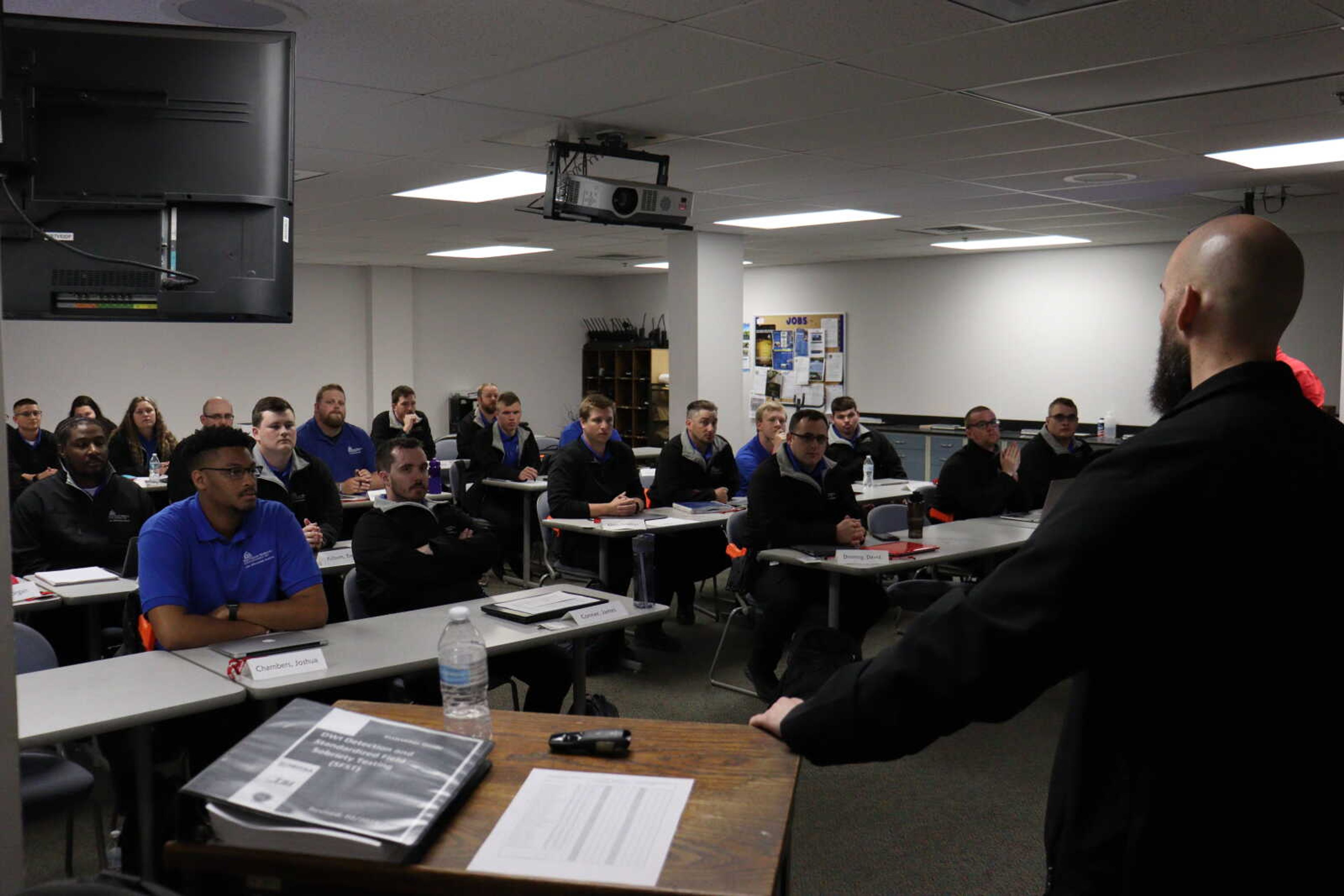Law enforcement addresses its plans for a more transparent future
Whether it's a call to action, a desire to serve the community or a sense of duty beyond one's self, the road that leads citizens to join law enforcement is unique for each person. In this modern era, being part of law enforcement can take on many roles, each defined by the needs of the community they serve...
Whether it's a call to action, a desire to serve the community or a sense of duty beyond one's self, the road that leads citizens to join law enforcement is unique for each person. In this modern era, being part of law enforcement can take on many roles, each defined by the needs of the community they serve.
Carl Kinnison, instructor of criminal justice, social work and sociology, said law enforcement has, for a long time, begun a movement of reform, with each era defining how it happens and what changes are made.
“If you go back historically, it goes back to the late 1800s to early 1900s,” Kinnison said. “There’s always been an era of police needing reform, and there’s usually incidents that highlight those areas. In the ‘90s, it was Rodney King; in the ‘60s, it was the civil rights era that led to congressional action.”
Kinnison said law enforcement progressed to where it is today largely due to these moments in time highlighting and leading police officers and their agencies down a path toward reform. Each of these has layered upon the last, Kinnison said, ultimately leading to many of the policies and procedures used by police today.
“One of the most dramatic things I think we’ve seen [change] is the use of body cameras,” Kinnison said.
Kinnison said in the ‘90s, it was difficult to get information about police activity. It wasn’t until someone videotaped the incident involving Rodney King that citizens had a chance to see with their own eyes how law enforcement behaved. After it became public, Kinnison said the spotlight began to highlight police activity and created transparency with the public.
Procedure is not the only area in which changes to law enforcement are taking place. The initiative by law enforcement agencies to move certain operations away from officers and put them in the hands of non-enforcement-related agencies is one way change is being made.
Law enforcement academy director Bobby Bollinger said Cape Girardeau is starting to approach mental health cases differently.
“Cape Girardeau Police Department just hired two mental health professionals, and their job, once trained, will be to respond to mental health calls instead of law enforcement officers,” Bollinger said. “[Law enforcement officers] are not mental health professionals. We do a lot of mental health training, and we do the best we can with folks; however, somebody that’s got a mental health background can do a whole lot more.”
While the move to putting different departments of law enforcement into the hands of mental health professionals is something new to law enforcement, Bollinger said he thinks it's a good move by the agencies to help get citizens connected to the resources they need and to keep them out of the criminal justice system.
“Basically, the entire focus is if the person does not need to be in the criminal justice system, then let's get them resources outside the system, so they don’t get trapped in the system,” Bollinger said.
Even with the changes to the system, there are still many issues new officers and members of law enforcement face when deciding to work in criminal justice. For junior psychology major Kate Marshall, the negative stigma associated with being an officer or member of criminal justice is a hard one to shake.
“I thought about going into policing for a while because I wanted to go into detective work, but the stigma around it is something I definitely had to take account of when looking into what I wanted to do,” Marshall said.
Even with the battle to overcome the stigma, Marshall said the call to make a difference and become a leader in the community drove her to continue her pursuit.
“When you think of a police officer, you think of a leader,” Marshall said. “Having that responsibility is definitely a big one. You have your civil responsibility and your responsibility to act.”






